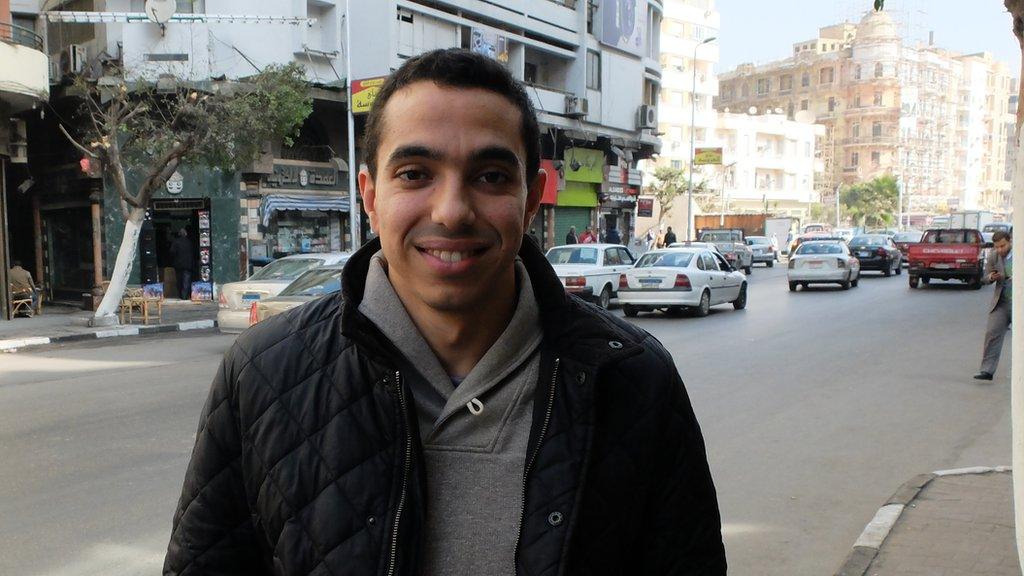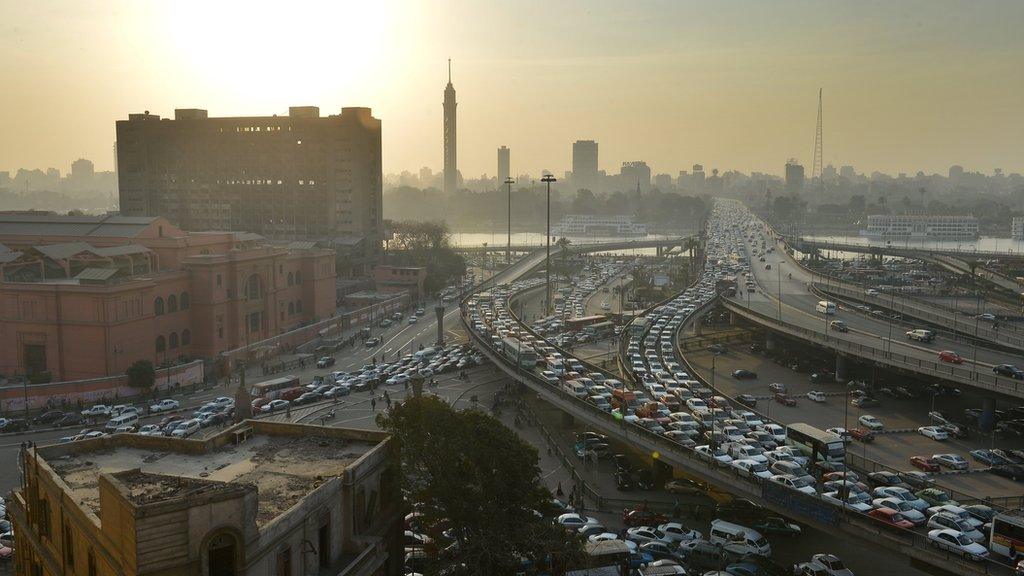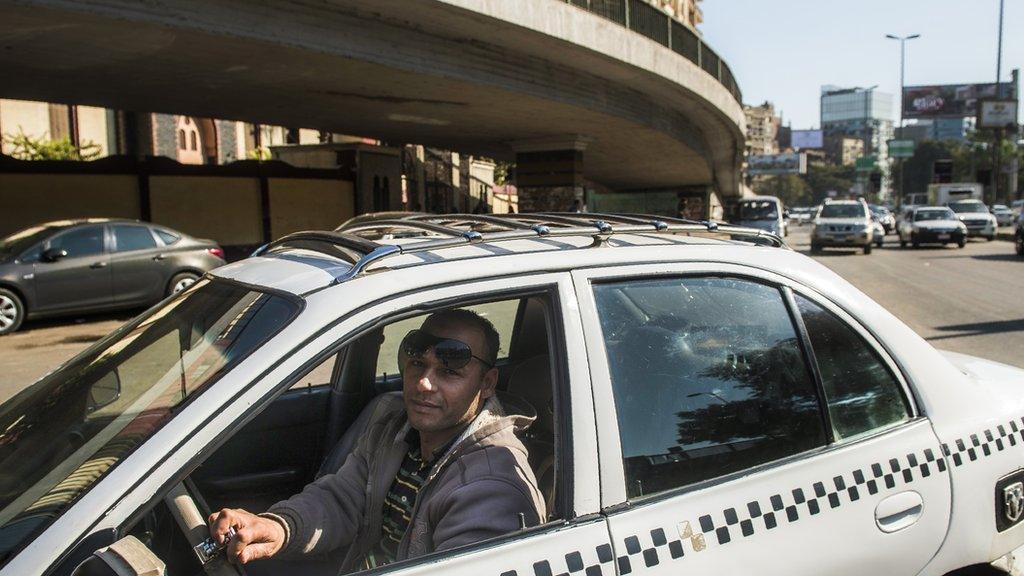What's behind Uber's success in Egypt?
- Published
What's behind Uber's success in Egypt?
On the congested streets of downtown Cairo, hundreds of cars jostle for position at the junctions around Tahrir Square.
As the rush hour reaches its peak, traffic grinds to a halt and a chorus of car horns rises from the increasingly irate drivers.
"This is the soundtrack of Cairo," says Tino Waked, general manager of Uber in Egypt, above the din.
He is standing outside Uber's Cairo office, which opened a little over two years ago.
Along the pavement dozens of local men, mostly young and dressed in leather jackets and jeans, are waiting to sign on as Uber drivers.
The ride-sharing giant may have been born thousands of miles away in San Francisco, but it's in fast-growing cities like Cairo that it is now booming.

Tino Waked says Uber is creating much-needed jobs in Egypt
Egypt is currently one of Uber's fastest growing markets in the world.
There are more than 40,000 Egyptian drivers working on the platform every month, the company says, and new drivers are joining up at the rate of 2,000 a week.
Among them is Mohamed, a man in his twenties waiting patiently in the queue.
He says he used to be employed as a driver at a local tour company. But with the collapse in the tourism industry following the Arab Spring, he's now looking for a new source of income.
He has heard good things about the company from friends who are already drivers, he says, and hopes he can "make a million pounds, God willing".
Tino Waked says it is this urgent need for jobs that's helping make Uber such a success in Egypt.
"What's very different in Egypt compared to anywhere else is the economic opportunity that Uber provides to drivers," he says.
"Forty per cent of our drivers were unemployed before joining Uber. So it's an additional source of income, especially given the difficult period the country is going through."

Many drivers hate the notorious Cairo traffic
Egypt's economy has been in the doldrums since the economic shock of the revolution in 2011 and the political instability that followed.
The youth unemployment rate stands at more than 30%. Foreign investment and earnings from tourism have dried up.
Egypt's already-large population is expanding rapidly, and economic growth is not keeping pace.
Things got even worse for many Egyptians last year when the government floated the currency as part of a package of economic reforms, meaning the prices of many basic goods doubled overnight.
In this difficult economic climate, gig economy employers like Uber have been seen as a welcome provider of quick and accessible jobs.
Uber's expansion into developing markets comes as it faces a string of controversies elsewhere.
In February, chief executive Travis Kalanick was filmed arguing with one Uber driver over the company's fare structure, while it has faced a string of court cases over its workers' rights.
There have been allegations of sexual harassment, and accidents in testing its self-driving cars. A campaign last year urged customers to delete their Uber app after the company appeared to take advantage of a New York cab drivers' strike.
But Uber's rapid roll-out in Egypt and the huge influx of new drivers has not been without problems either.
As in other markets in Africa and Asia, the company has been forced to accept cash payments in Egypt to accommodate the majority without access to a credit or debit card.
Just 35% of Egyptians have access to a credit card, according to Mastercard, and more than 90% of all financial transactions are in cash.

Cairo's traditional taxi drivers have complained that ride-sharing apps threaten their livelihoods
Another problem is that many Egyptian drivers are unfamiliar with the technology that has made Uber so successful elsewhere.
Customers have complained that drivers don't know how to read online maps.
One Cairo resident complained that an Uber driver who was asked to take her to the airport had no idea where it was or how to get there.
"One of the biggest differences is that we spend a lot of time educating the drivers on how to use the app, how to use the technology," admits Tino Waked. "A lot of people have not used a smartphone before."
Meanwhile, traditional taxi drivers who have not migrated to Uber or successful rival ride-sharing apps like regional competitor Careem have been up in arms, staging protests in Cairo's streets over Uber's subsidised fares, and accusing the company of stealing their livelihoods in tough economic times.
But Tino Waked is optimistic that Uber's success in Egypt and other markets will continue for as long as there is a demand for jobs and an alternative to braving the notorious Cairo traffic.
"I hate driving, specifically in Cairo," he says. "I sold my car six months ago, and I have no regrets."
Listen to Business Daily's special programme on Uber on the BBC World Service